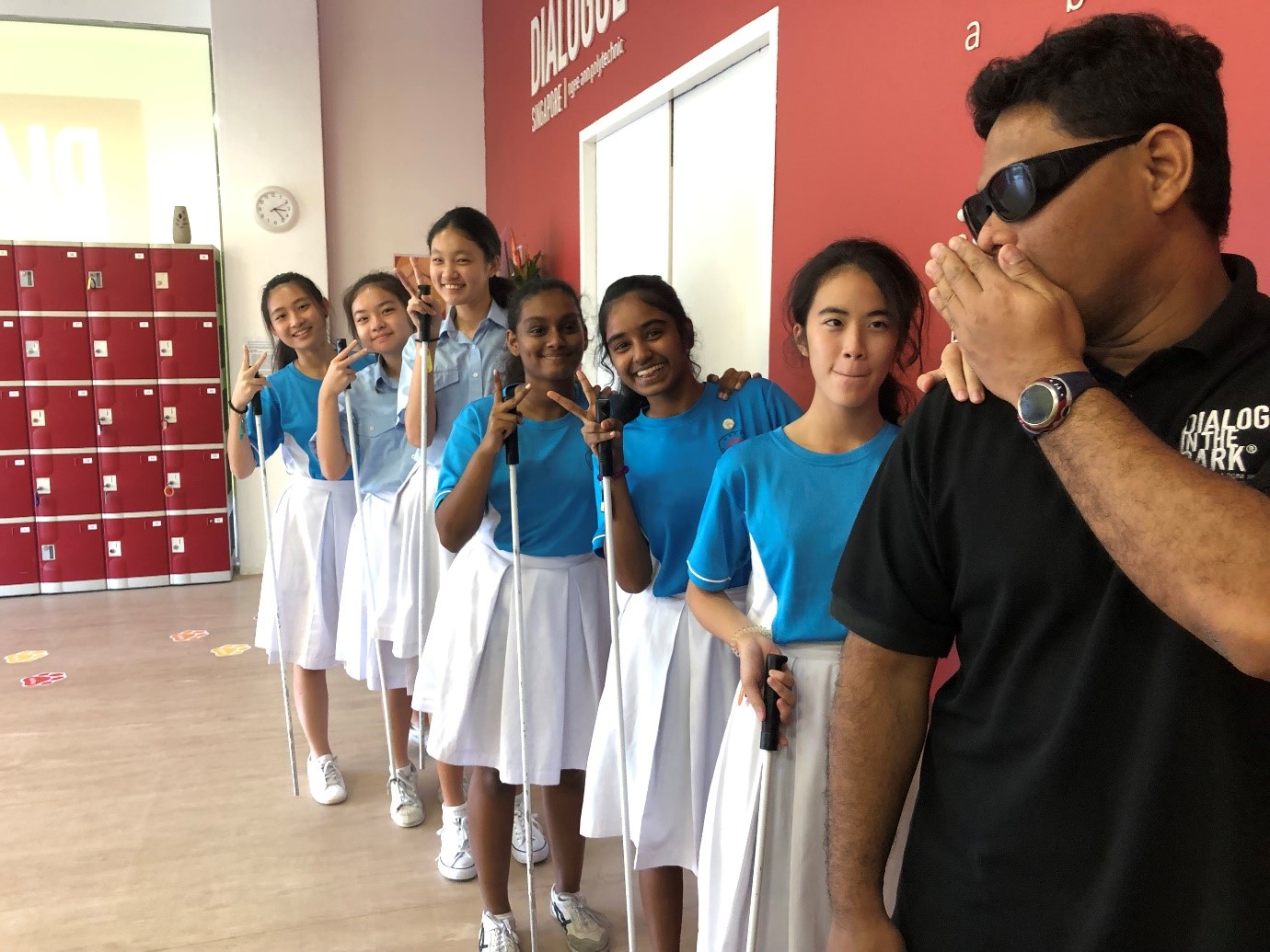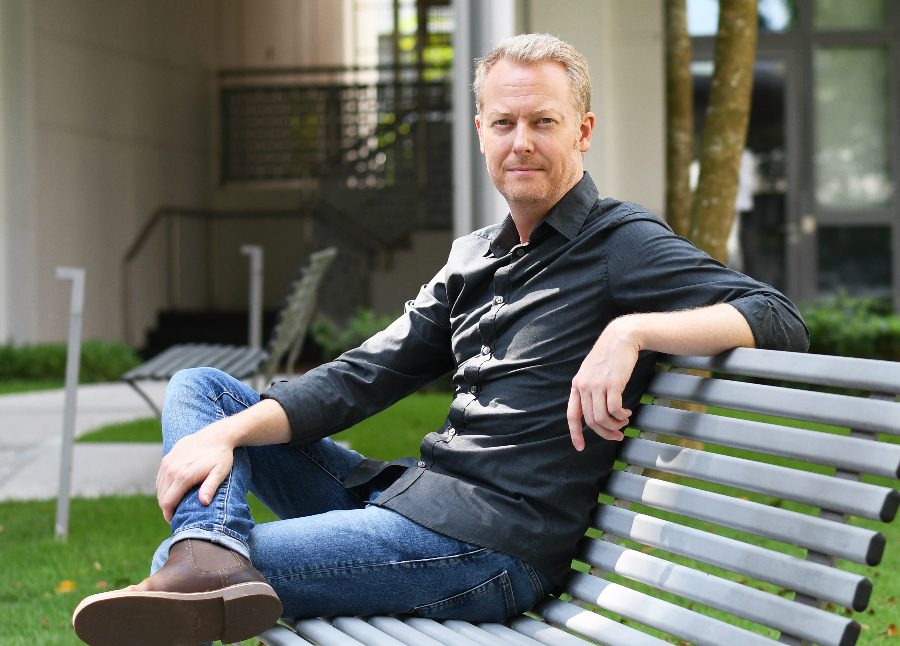The first time Yasvini realised that she could make a big difference – even with a small action – was when she was a Secondary 2 student at New Town Secondary.
Yasvini Sharmala, who is now studying Community Development at Ngee Ann Polytechnic, recalls how she noticed a classmate often missing school. Reaching out to her, Yasvini found out that she was facing some challenges in her personal life. Yasvini felt that her classmate needed some company, so she invited her to join her group of friends for meals during recess and to hang out during their free time.
“It was just a small way of showing that we cared for her, and for her to know that she would always have us to support her,” says Yasvini. Her classmate started to open up to the group, embracing the newly formed friendships.
The importance of these small gestures was brought home to Yasvini in a bigger way when she took on the role of a Peer Support Leader (PSL) that same year.
Turning to friends
The idea of Peer Support Leaders is common across schools now, with all schools to have a peer support structure in place by the end of 2021. This is important because young people may often prefer to turn to their friends when they face issues rather than adults.
“The role of PSLs is a dynamic one,” says Ms Yap Sze Hui Stella, Teacher-In-Charge of Student Leadership and Overall-In-Charge of Peer Support Leaders Board initiatives at New Town Secondary School. “PSLs create and anchor a culture of care, whether in learning, in social interactions or in the digital space. They look out for students exhibiting signs of distress, listen to their problems and empathise with them. They encourage them to seek help from a trusted adult, and also share positive coping strategies with them.
PSLs in New Town Secondary School are selected through a teacher, peer and self-nomination process. They are then trained with additional skills to take on a more active role in looking out for their fellow students’ well-being.
The initial doubt
While PSLs are today a familiar part of the school community, it was not always the case when the school first introduced the role of PSLs in 2017, with Yasvini part of the second cohort of PSLs.
At that time, neither the student body nor the PSLs themselves were convinced about the role. Ms Yap shares, “It was definitely difficult at first, because students did not see the need for peer support.”
Seah Ke Wei, who was another PSL in Yasvini’s cohort, says, “When we first began, we did not have confidence that we could make an impact.”
Rakshana D/O Gopalakrishnan, then a Secondary 1 student and part of the third batch of PSLs, explains, “Everyone was from the same age group and our peers thought that we would not be able to help much.”
What she, Yasvini and Ke Wei did not realise then, was the long-lasting effect that the PSL experience would have, not just on those around themselves, but themselves.
To support rather than solve
Through their interactions with their peers, the trio came to understand one simple principle – the crux of being an effective PSL is to provide a listening ear, and be someone others can trust.
Yasvini says, “Our peers actually didn’t want anything from us. They just wanted us to listen and be there for them.”
Ke Wei adds, “All they needed was a safe space to talk and someone to confide in.”
This understanding that a PSL is not expected to solve problems but to support by being a friend helped allay the PSLs’ anxiety about their role as well.
“A PSL does not set out to be a problem-solver or adviser,” emphasises Ms Yap. “We hope they offer genuine friendship and support in any shape or form.”
To help them in their role, PSLs at New Town Secondary go through training sessions to first develop self-awareness and adopt self-management strategies. Then they learn skills like Peer Bonding, Peer Helping, Peer Influencing and Cyber Wellness.
During the training, there are scenario-based discussions that empower PSLs in their decision-making competencies and build their confidence in managing challenging situations.

Rakshana (4th from left) with her fellow PSLs participating in a leadership training session conducted at Dialogue In the Dark, a teaching and learning facility in Ngee Ann Polytechnic where participants will experience the life of a visually impaired person. (Photograph taken before 2020.)
PSLs are also reminded to look out for themselves and seek help from fellow PSLs and teachers if they feel overwhelmed or face setbacks. As Ke Wei shares, “We had to remind ourselves not to get too emotionally attached, and to know that we can always reach out to our friends or teachers if there is a need to talk.”
As Ms Yap says, “At the heart of peer support is a simple belief: that everyone, and anyone is worth the while.”
The path to trust
Even though these pioneer PSLs in New Town Secondary had an uncertain start, they knew they were making a difference when more of their friends and classmates started seeking them out to sound out their problems. “It takes courage to reach out, so I knew they trusted us,” says Yasvini.
Some wanted to understand more about PSLs and how they worked. Ke Wei recalls, “My classmates were asking me how my meetings went. It encouraged me to know that we were no longer just an afterthought, but we held a certain duty.”
A particular incident took place during Rakshana’s Secondary 4 days, when a classmate attempted to hurt herself after a setback. As a form of support, “we made a poster and got the whole class to write positive messages to our classmate, and regularly checked in with her to make sure she was alright”, says Rakshana.
Knowing that what they did helped her classmate feel better, Rakshana realised that what mattered was “the heart of wanting to help people and letting them know that we are here for you”.
As Ms Yap says, “We want all our students to have this innate sense of care and responsibility towards each other. Our dream is for every student to be a peer supporter, not just in name but in the way they carry themselves and bring about positive change.”
She adds, “All you need is to be genuine and grounded and people will see your heart. I tell all our PSLs that this brings out the best, not just in those they help, but the PSLs themselves.”
The road towards building a caring community
This seems to be true in the case of Ke Wei, Rakshana and Yasvini, who are all pursuing areas of study inspired by their experiences as PSLs.
“As PSLs, we had that responsibility to help our fellow students as much as we could, and we definitely want to carry on this spirit wherever we go,” says Yasvini. Every Saturday, she volunteers with IM Hope, a CCA group at Ngee Ann Polytechnic which engages with patients at the Institute of Mental Health.
Rakshana, who is also studying Community Development at Ngee Ann Polytechnic, wants to introduce the concept of peer support to young children, starting from kindergarten.
Ke Wei, who is pursuing a Diploma in Integrated Events Management at Republic Polytechnic, is still a PSL in his school. He continues to support his schoolmates, be it new students who are transitioning to polytechnic life, or current students through their daily interactions.
Beyond their career goals, the trio mention how their PSL experience has made them more conscious of the people around them. “It is almost like a natural instinct for me to reach out if I see a person who is unhappy or distressed,” shares Rakshana.
Ke Wei shares, “Youths are now more open to voicing out their issues especially through social media, and the community have been very supportive as they voice out their issues.”
Rakshana adds, “If people can see how powerful peer support can be, everyone can play their part in supporting others as well.”
As these three youths came to realise, sometimes all that is needed is to ask a simple question: “Are you alright?”
Those three little words can be the start of a healing journey.



-jpg7c245da7a8a66eb2afccc900c73e6f2e.png)


